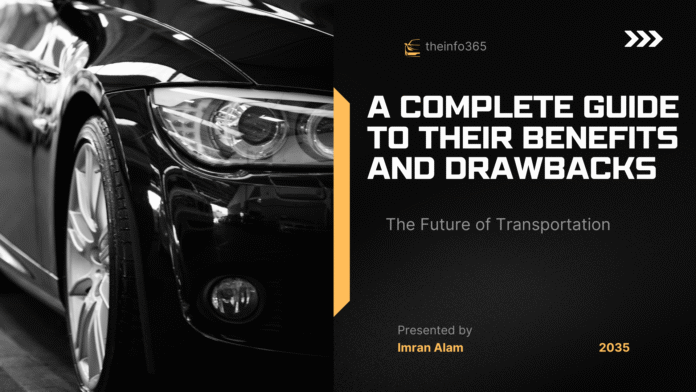Electric cars have moved from being a new trend to a serious option for everyday drivers. Companies across the world are investing in cleaner mobility, and many governments encourage people to shift toward electric vehicles. As a result, more models are available, prices are slowly coming down, and charging points are increasing across cities.
Still, many buyers wonder if an electric car really suits their lifestyle. The truth is that electric cars offer some clear advantages, but they also come with limitations. Understanding both sides will help you make a better decision, especially if you are thinking about switching from petrol or diesel.
This post gives a complete, easy-to-read breakdown of the benefits and losses of electric cars, explained in a natural and practical way.
What Makes Electric Cars Different?
An electric car runs fully on electricity stored in a battery. Instead of an engine, there is an electric motor. You charge the battery using a charger at home, at work, or at a public charging station.
Because of this simple design, the driving experience and ownership experience are different from regular fuel cars. Some changes feel positive, while others can be difficult depending on where you live and how much you travel.
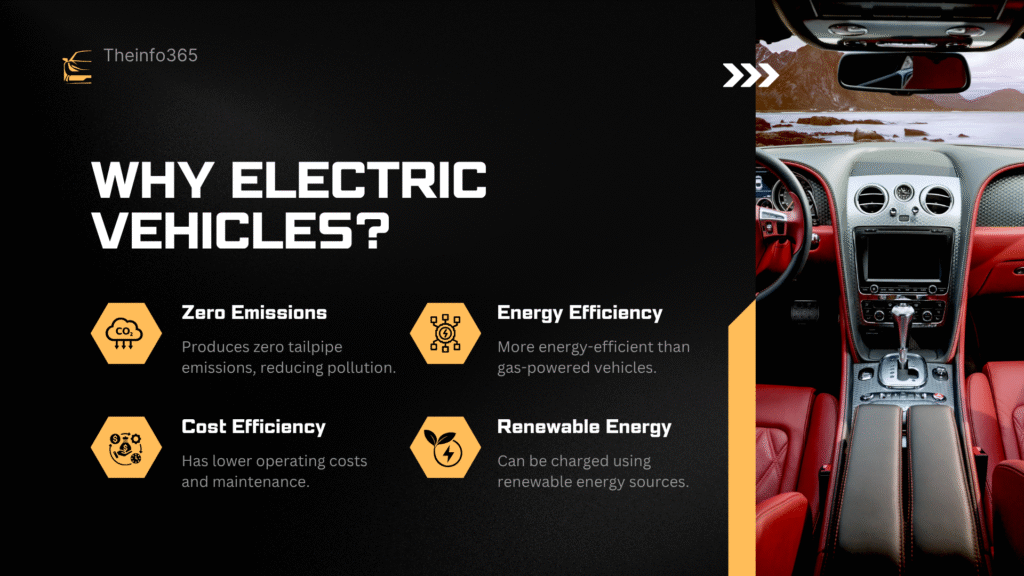
Benefits of Electric Cars
1. Lower Running Cost
One of the biggest reasons people move to electric cars is the daily savings. Electricity costs less than diesel or petrol in most countries.
If you charge at home, especially during off-peak hours, you can drive hundreds of kilometers at a fraction of the cost of a fuel car.
For example, a petrol car that gives you 12–15 km per liter ends up costing far more per kilometer than an electric car charged at home. Over a year, the savings can be significant, especially if you drive long distances daily.
2. Very Low Maintenance
Electric cars don’t have engines, gearboxes, or radiators. There are no oil changes, no spark plugs, no fuel filters, and no clutch issues.
The motor has fewer moving parts, so there is less chance of breakdown. Even brake pads last longer because electric cars use regenerative braking, which slows down the car by using the motor instead of the brakes.
This makes ownership smoother and cheaper in the long term.
3. No Tailpipe Emissions
Electric cars don’t produce smoke because they don’t burn fuel. For cities with high pollution, this makes a noticeable difference. Cleaner air means better health and a more comfortable environment.
Even though electricity may still be produced from different sources, driving an electric car directly reduces emissions on the road, especially in crowded areas.
4. Quiet and Smooth Drive
Electric cars are known for their calm driving experience. There is no engine noise or vibration.
When you press the accelerator, the car responds instantly. This feels smooth and makes city driving more enjoyable. During long rides, the quiet cabin reduces fatigue for the driver and passengers.
5. Home Charging Comfort
One of the most convenient parts of owning an electric car is charging it at home. You simply plug it in at night and wake up with a full battery in the morning.
No more waiting at fuel stations. No more standing in lines. If you have a fixed daily route, you may not need a public charger at all.
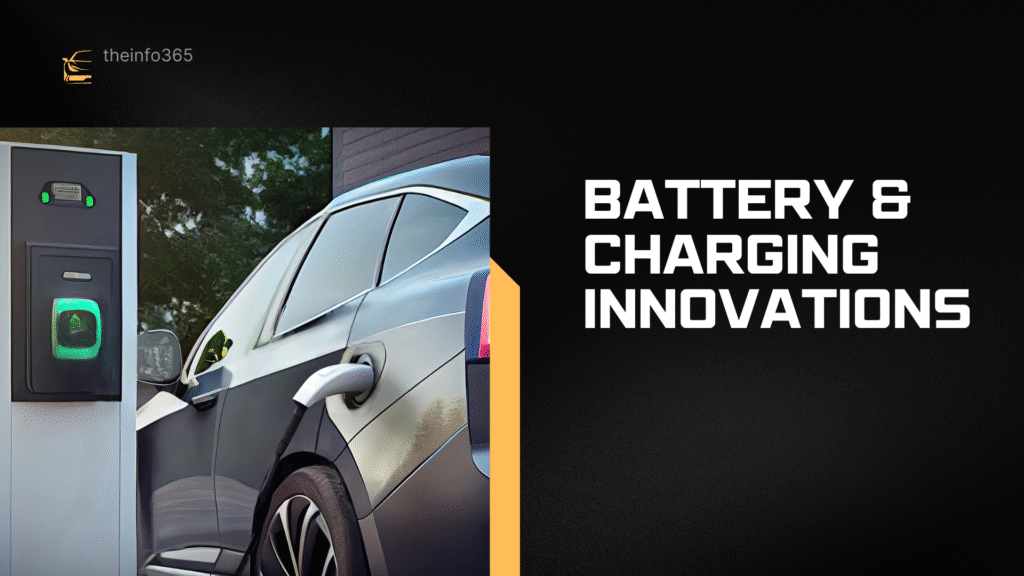
6. Environment Friendly Driving
Electric cars help reduce dependence on fossil fuels. When powered by renewable energy sources like solar or wind, they become even cleaner. Many countries encourage electric cars as part of their long-term environmental planning.
7. Government Incentives
Governments often support electric cars through:
- Tax rebates
- Registration fee discounts
- Free or cheaper parking
- Reduced toll fees
- Access to dedicated EV lanes
These benefits help bring down the cost and make the shift more attractive.
8. Modern Technology and Features
Most electric cars come with advanced safety features, digital dashboards and smart connectivity. Many provide over-the-air updates, meaning your car can receive new improvements just like your phone.
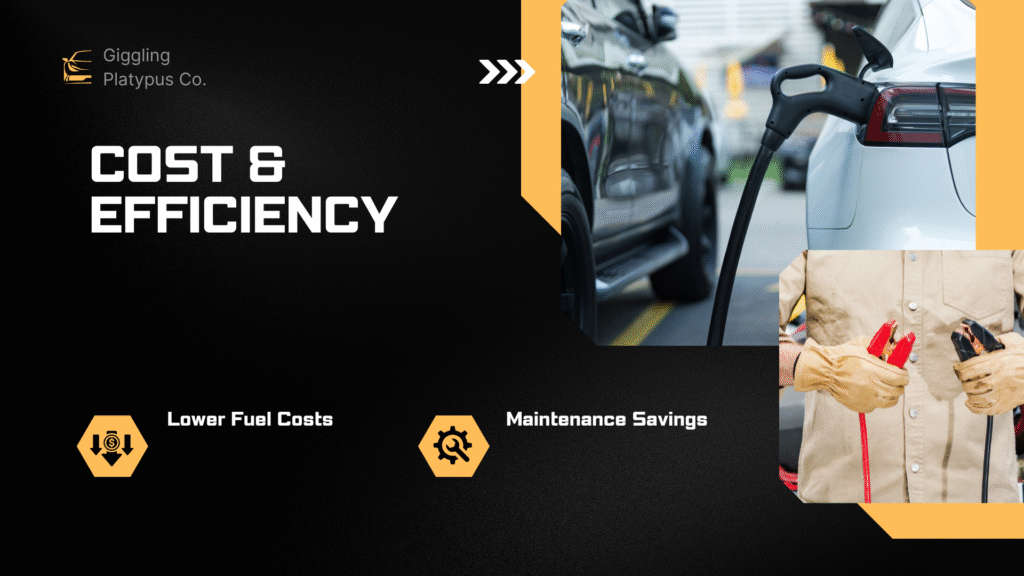
Drawbacks of Electric Cars
Even with all the advantages, electric cars are not perfect. Here are the main challenges that buyers face.
1. Higher Upfront Price
Electric cars usually cost more than petrol or diesel cars with similar features. The battery is the most expensive part.
Although prices are reducing year by year, the initial investment is still high for many buyers. Even with government incentives, the upfront cost can be a big hurdle.
2. Limited Range on a Single Charge
Most electric cars cannot travel as far as fuel cars before needing a recharge.
A typical mid-range EV might give 250 to 400 km on a full charge. While this is enough for city use, long-distance travel requires planning. You need to know where the charging stations are and how fast they can charge your battery.
3. Long Charging Time
Charging takes longer compared to filling fuel. Even a fast charger may take 30 minutes or more to reach 80 percent. A normal home charger might take several hours.
If you are in a hurry or if charging stations are busy, this can be inconvenient.
4. Charging Infrastructure Challenges
Not all places have enough charging stations. In many regions, the network is still developing.
If you live in an apartment without dedicated parking or if your area lacks public chargers, managing an electric car becomes difficult.
This is one of the biggest reasons people hesitate to switch.
5. Battery Replacement Cost
The battery is the most expensive component of an electric car. Although modern batteries are designed to last many years, they do degrade over time.
Most EV batteries last around 6 to 10 years depending on climate, driving style and charging habits. Replacing a battery can be costly, although some car companies provide extended warranties to help with this.
6. Reduced Range in Extreme Weather
Very hot or very cold temperatures affect the battery. In cold climates, batteries lose range because they need extra energy to warm up. In hot climates, high temperatures cause faster battery degradation.
Air conditioning or cabin heating also consumes a good amount of power, which further reduces the driving range.
7. Limited Choices in Some Markets
Although EV options are increasing, some regions still offer fewer models compared to fuel cars. If you want a specific body type like a pickup, a 7-seater or a low-budget model, choices may be limited.
8. Resale Value Uncertainty
The EV market is still developing. Battery technology improves quickly, and new models replace older ones at a fast rate.
Because of this, the resale value of some electric cars may drop faster than traditional vehicles.
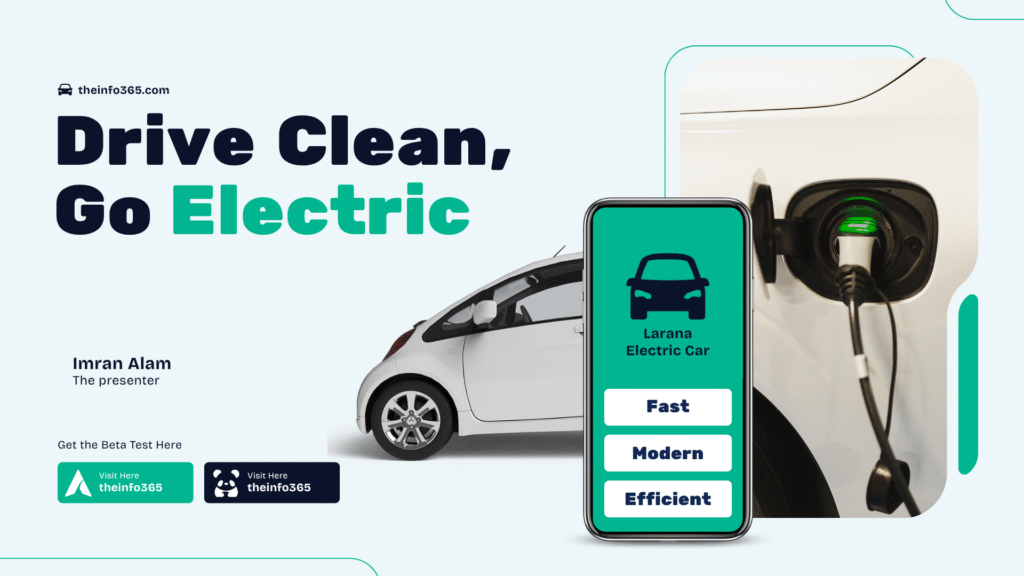
Is an Electric Car Right for You?
Electric cars are excellent for daily city use. If your daily driving distance is moderate and you have access to home or workplace charging, you will enjoy the convenience and savings.
However, if you frequently travel long distances or live in an area with limited charging infrastructure, a fuel car or hybrid may suit you better.
Before buying, ask yourself:
- How many kilometers do I drive daily?
- Can I install a home charger?
- Are there charging stations near my workplace or on my regular route?
- Do I drive long distances often?
- Can I manage the initial higher cost for long-term savings?
If your answers match the strengths of EVs, the switch will be smooth and satisfying.
Electric Car: Benefits and Drawbacks (Quick Table)
| Benefits | Details |
|---|---|
| Lower running cost | Electricity costs less than petrol or diesel, saving money daily. |
| Low maintenance | Fewer moving parts, no oil changes, fewer repairs. |
| No emissions | No smoke or tailpipe pollution, cleaner for cities. |
| Smooth and quiet | Instant power, no engine noise, comfortable driving. |
| Home charging | Easy overnight charging at home. |
| Government support | Tax discounts, toll benefits, special parking. |
| Drawbacks | Details |
|---|---|
| High purchase price | Battery makes EVs more expensive upfront. |
| Limited range | Needs charging more often on long trips. |
| Long charging time | Charging takes longer than fueling. |
| Weak charging network | Some areas have fewer charging stations. |
| Battery replacement cost | Battery life is limited and expensive to replace. |
| Weather impact | Extreme heat or cold reduces range. |
Future of Electric Cars
The electric vehicle industry is growing fast. Battery costs are dropping, range is improving and more charging stations are opening every year. Many companies are also working on faster charging technologies, making it possible to get a full charge in a few minutes.
Governments worldwide are planning to phase out fuel cars in the long run, which shows how important electric mobility is becoming. As the network and technology improve, electric cars will become more practical and affordable for everyone.

